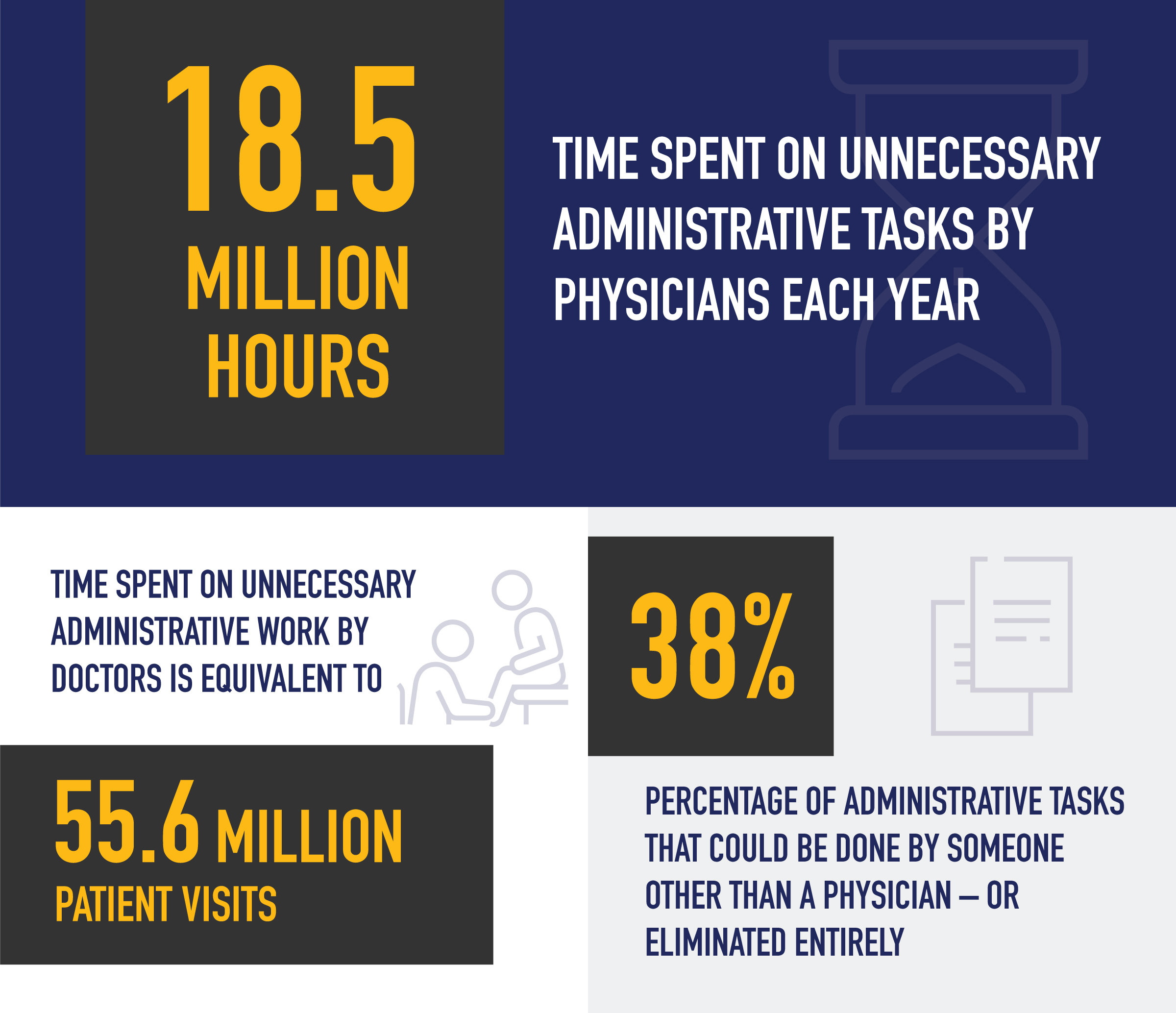Doctors don’t go into medicine for the paperwork. But from charting, third-party forms and sick notes, to managing an office, tracking down lab results and following up from patient appointments, physician's administrative load can be relentless.
In many cases, this work takes place after hours – extending the workday and negatively affecting work-life balance. According to the CMA’s latest National Physician Health Survey, nearly 60% of physicians have said these are issues that directly contribute to worsening mental health.
Seventy-five percent of doctors have said their administrative workload is also an impediment to caring for their patients, getting in the way of important relationships and their satisfaction in work.
Doctors and patients both need dedicated time to partner on the issues that matter most. Administrative tasks and filling in gaps from missing or siloed information chips away at this valuable time and degrades the ability for us to authentically connect.
— Claire Snyman, former CMA Patient Voice Member

Source: Canadian Federation of Independent Business: Patients before paperwork, 2023
Our work on reducing administrative burdens
The CMA is advocating for change at a national level.
Our calls for better access to patient data – for patients themselves as well as providers across the continuum of care – is reflected in federal legislation introduced in June 2024 to mandate connectivity in health care.
To ensure everyday realities are front and centre in this reform, the CMA conducted a national survey on digital tools in doctors’ practices and continues to lead a digital health interoperability task force with Canada Health Infoway, the Royal College of Physicians and Surgeons of Canada and the College of Family Physicians of Canada.
The CMA has also recommended the prohibition of employee sick notes, a known strain on the health care system, and is working to eliminate or streamline federal forms. With provincial and territorial medical associations, we’re weighing in on processes to support the new Canada Disability Benefit. And we continue to raise awareness of the impact of physicians’ administrative burden on providers and access to health care in media interviews and op-eds targeted at decision-makers in Ottawa.
Our partners on administrative workloads
In partnership with the College of Family Physicians of Canada and the Canadian Nurses Association, we’re tracking progress by federal, provincial and territorial governments in response to joint recommendations to reduce red tape.
Together with MD Financial Management Inc. and Scotiabank®, we’ve invested $10 million in innovative projects to reduce physicians’ administrative burden through the Healthcare Unburdened Grant program.
At events like the Health Summit and the Canadian Conference on Physician Health, we convene physicians, patients and policy-makers to talk about their experiences and ideas to reduce paperwork in the profession and improve doctors’ mental health and wellbeing.
We also continue to work with provincial and territorial medical associations and celebrate their momentum.
Nova Scotia has implemented reforms saving physicians an estimated 200,000 paperwork hours a year. Proposed legislation in Quebec will prohibit private insurers from requiring notes from physicians before reimbursing patients for treatments such as physiotherapy or medical equipment such as crutches. And Doctors of BC is collaborating with WorkSafe BC to improve its billing process.
Most physicians go into medicine because we want to sit at that intersection between science and human-to-human connection. Administrative burden stands in the way of that positive relationship we have with patients.
— Dr. Kathleen Ross, CMA president
What physicians can do to help
Collaboration with physicians and learners of all ages, stages and specialties, from rural and remote communities as well as big cities, is essential for a better way forward.
